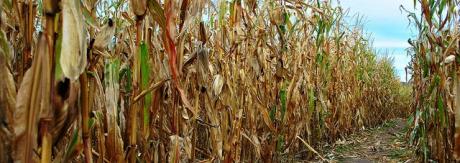
Drought hits US ethanol industry
The worst drought in the US in 56 years has caused corn prices to explode, and yesterday they hit the highest level ever.
The main part of the US ethanol plants have corn as their primary feedstock, which means that many, because to the rising corn prices, have been forced to close. Because of this, the ethanol production in the US is now on its lowest level in two years.
At the same time, lobbyists from the American food industry, along with producers of chicken, cattle and pigs, are now attacking the American ethanol industry, claiming that the industry’s enormous use of corn is contributing to the rise in corn prices, which causes higher prices on food and feed.
Therefore, they want politicians to suspend or reduce the legal requirements for how much ethanol should be blended into gasoline. Governors from several states are apparently supporting the demand, which was also put forward – but not carried through – during the 2008 food crisis, writes Lars Attrup.
The legally binding minimum requirements have so far formed the foundation of the American ethanol industry – a foundation which has been raised year after year in order to make the US energy sector more self-sufficient.
By-products from ethanol industry neutralise rise in corn prices
During the food crisis in 2008, the US ethanol industry was blamed as one of the villains. According to lobbyists, the ethanol industry’s enormous use of corn for the production of fuel was responsible for creating a shortage which put pressure the food and feed prices.
This was the accusation made, but subsequently, a long list of independent experts have differentiated this view somewhat.
A decisive point – that never prevailed the 2008 food crisis – is that ethanol productions deliver a very large by-product, in the form of a protein product, which is returned to the agricultural sector. This feed production neutralises to a very wide extend the effect that ethanol productions have on corn prices, writes Lars Attrup.
Follow the developments within biorefining. hveiti regularly informs about our efforts to improve the environment.
Copyright © 2011 | Hveiti | Design Rabotnik




